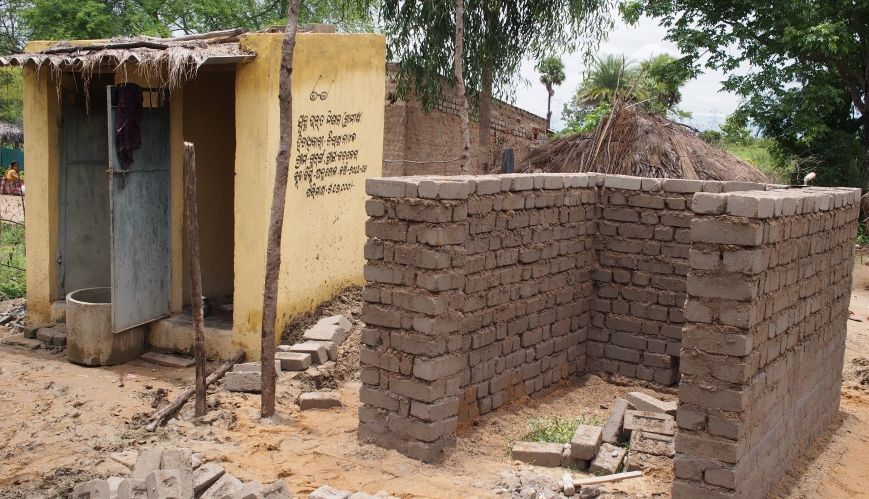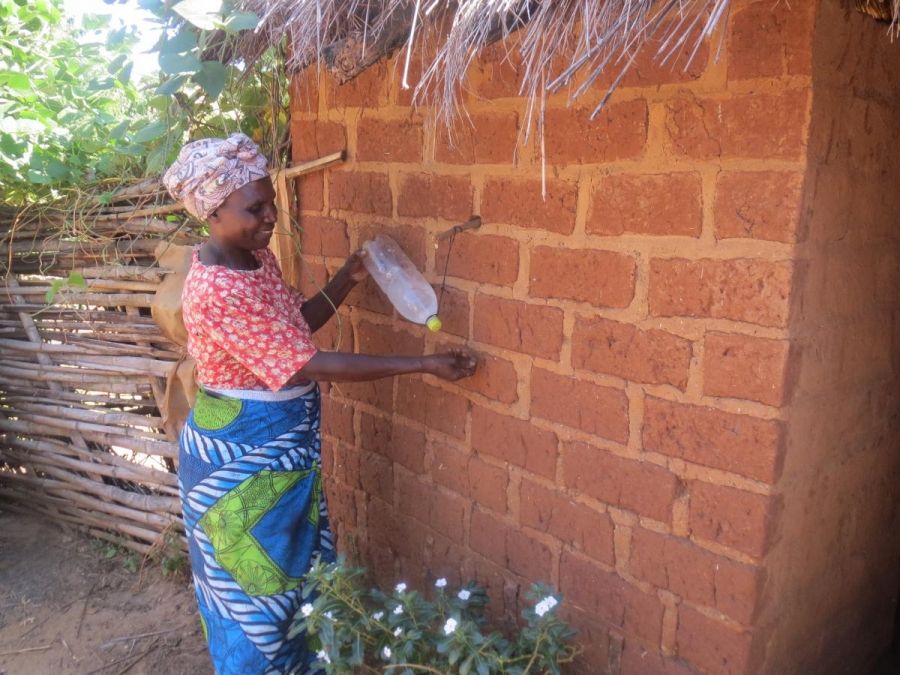Global sanitation crisis prompts Salvos response

Global sanitation crisis prompts Salvos response
19 November 2016
Funds raised through Salvation Army corps and centres around the Australia Eastern Territory are helping Salvation Army International Development (SAID) build toilets accessible to people with disabilities in the India North Territory.
World Toilet Day is a United Nations (UN) observance, marked annually on 19 November. The thought of a World Toilet Day may bring a smile or chuckle to many, especially in the Western world, but the day itself highlights a serious problem – 2.5 billion people globally do not have access to proper sanitation.
World Toilet Day is also about the almost 1 billion people around the world who have no option but to defecate in the open, and the millions of children whose health and futures are compromised by poor sanitation and related problems. Globally, more people have a mobile phone than a toilet.
According to the UN, the countries where open defecation is most widely practiced are the same countries with the highest numbers of child deaths under the age of five, high levels of under-nutrition and poverty, and large wealth disparities. Open defecation – a practice deemed “extremely harmful” to public health, as well as having significant impact on human dignity and security, the environment, and social and economic development – is due to lack of proper toilet facilities.
World Toilet Day focuses on making sanitation for all a global development priority. The day also intends to raise awareness of sanitation issues and encourage UN Member States and relevant stakeholders, including civil society and non-governmental organisations, to promote behavioural change and the implementation of policies in order to increase access to sanitation among the poor and end the practice of open defecation.
The Salvation Army is working in many nations around the world to give communities access to clean water, good sanitation and hygiene education (see adjacent page). Let’s take a moment to think about life without access to a toilet, clean drinking water and good hygiene and do our part to help those who, together with their families and communities, have to face that reality and its terrifying consequences, every day.
For more information, go to the UN Water website and also check out worldtoiletday.info.
SAID projects making an impact
The Salvation Army International Development team’s water, sanitation and hygiene (WASH) projects are making a huge difference in some of Africa’s most impoverished communities.
“Previous WASH activities in Malawi have enabled 37 communities to become open defecation free through the use of the ‘Community Led Total Sanitation’ process,” said Rachael Waugh, SAID’s Project Coordinator – Africa. “Over 408 households now have improved pit latrines and 100 composting toilets were established for community demonstration.”
 The practice of good hygiene, including hand washing, and access to safe water, is a major area of focus for the WASH project in Malawi.
The practice of good hygiene, including hand washing, and access to safe water, is a major area of focus for the WASH project in Malawi.
The WASH project’s aims for current and future endeavours include:
- The construction of 54 toilet holes in 18 schools with access to improved sanitation and hand-washing facilities.
- 18,000 pupils educated on water hygiene and sanitation.
- 57 villages declared open-defecation free and with access to sanitation facilities.
- 14,250 beneficiaries practising improved hygiene behaviours and with access to hand-washing facilities.
According to the World Bank in 2011, 21 million Kenyans (almost half the population) use unsanitary or shared latrines. Every year, almost 20,000 people, among them more than 17,000 children, die from diarrhoea, with 90 per cent of deaths directly attributed to poor water sanitation and hygiene. “Access to water and sanitation in schools is seen as a starting point for transformation and change within communities,” said Richard, Salvation Army Project Officer in Malawi. “Across 40 schools, the WASH project is aiming to give all students access to pit latrines and have facilities for hand-washing, including soap, available within 5m of the latrine.”
In Kenya the WASH project is working towards improving hygiene for thousands of people.
Additional goals include:
- Giving at least 80 per cent of girls access to sanitary products.
- Giving at least 80 per cent of community families access to their own pit latrines.
- Educating at least 80 per cent of students in hand-washing and the connection between water-borne diseases and lack of hygiene.
In Kenya, as part of a sanitation project, SAID is constructing a bathroom for The Salvation Army’s Joytown Primary School, which caters for children with physical and/or mental disabilities. “Many of the current toilet, washing and bathroom facilities [at the school] are not accessible or suitable for people with disabilities," said Rachael. "This project proposes to construct a new toilet and wash facilities in the primary school, which are specifically fitted with facilities suitable for people with disabilities.”
The gift of dignity
On Christmas Day last year, Salvation Army corps and centres across the Australia Eastern Territory raised money for the “Give the Gift of Dignity” campaign. Organised by The Salvation Army International Development (SAID) office, the campaign raised AUD $20,238.10 to help build 21 community toilets for people with disabilities in the India Northern Territory.
“Our goal was to build disability friendly toilets in Indian communities,” said Lieutenant-Colonel Simone Robertson, SAID Director. “We also wanted to provide 12 wheelchairs for people with disabilities who require a wheelchair to go to school or earn a living.”
Clinton, a project coordinator with SAID, was able to visit the project sites in July this year. “The ‘Community Toilets for the Disabled’ was initiated by local people with disabilities, many of whom are affected by polio,” he explained. “The fact that local beneficiaries - Christians, Hindus and Muslims - became aware of the need and approached The Salvation Army themselves with those needs is a definite strength of the project.”
Salvation Army staff will also liaise with local groups and facilitate training on how to use the toilets, the dangers of open defecation and best sanitation processes. For more information, go to salvos.org.au/said
Fast facts
- Every 20 seconds, a child dies as a result of poor sanitation.
- 2.5 billion people do not have access to adequate sanitation – that’s one in three of the world’s population.
- 1.1 billion people still practise open defecation – that’s 15 per cent of the world’s population.
- 650 million people live without safe water.
- Access to sanitation, the practice of good hygiene, and a safe water supply could save 1.5 million children a year.
For more information, go to unwater.org.